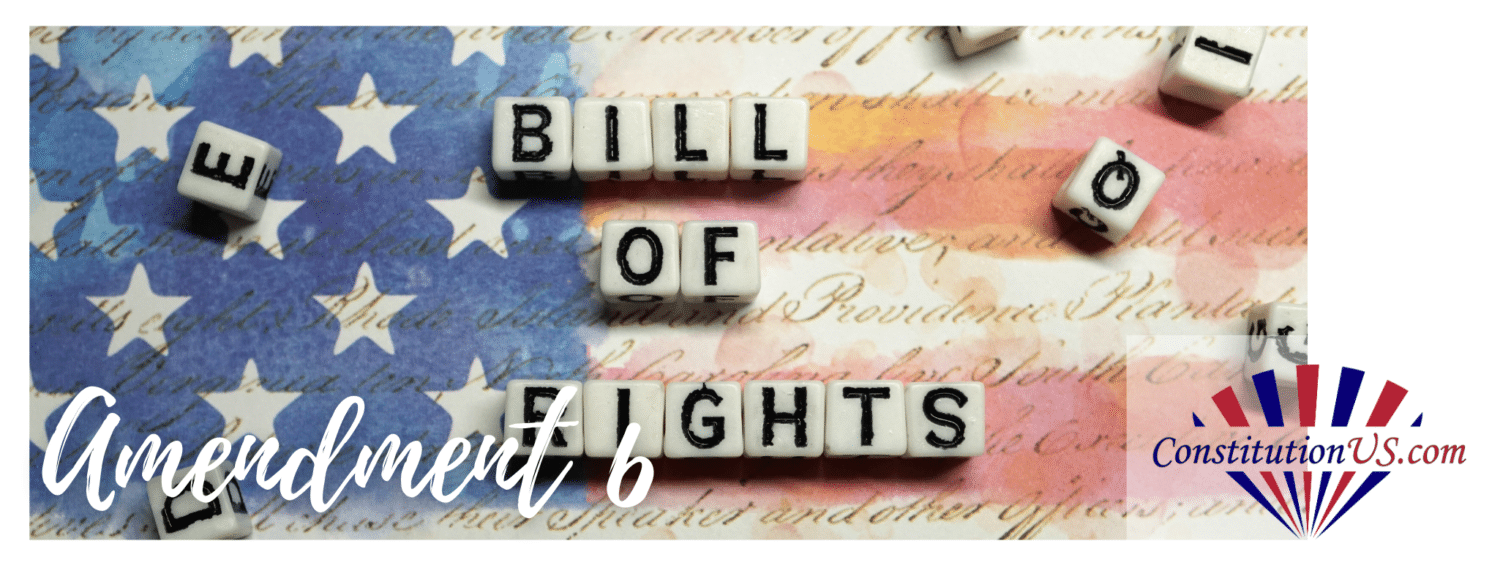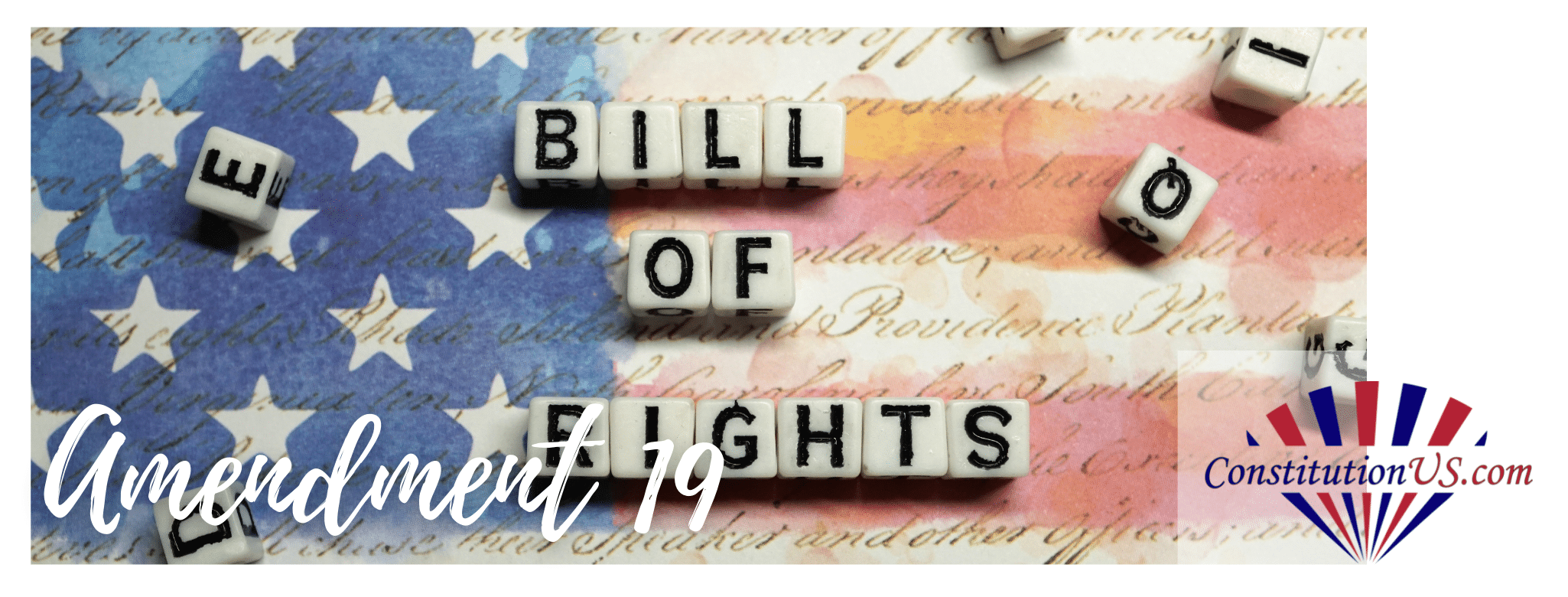Table of Contents
ToggleFull Text of the 18th Amendment to the US Constitution
After one year from the ratification of this article the manufacture, sale, or transportation of intoxicating liquors within, the importation thereof into, or the exportation thereof from the United States and all territory subject to the jurisdiction thereof for beverage purposes is hereby prohibited.
The Congress and the several States shall have concurrent power to enforce this article by appropriate legislation.
This article shall be inoperative unless it shall have been ratified as an amendment to the Constitution by the legislatures of the several States, as provided in the Constitution, within seven years from the date of the submission hereof to the States by the Congress.
What Is the 18th Amendment?
The 18th Amendment to the United States Constitution banned the manufacture, sale, and transportation of intoxicating liquors and was ratified on January 16, 1919.
However, it did not directly ban drinking alcohol, though the Volstead Act made most production and possession illegal except for limited cases such as medicinal, religious, or pre-existing supplies.
The Volstead Act defined ‘intoxicating liquors’ as any beverage containing more than 0.5% alcohol by volume, effectively banning even beer and wine.
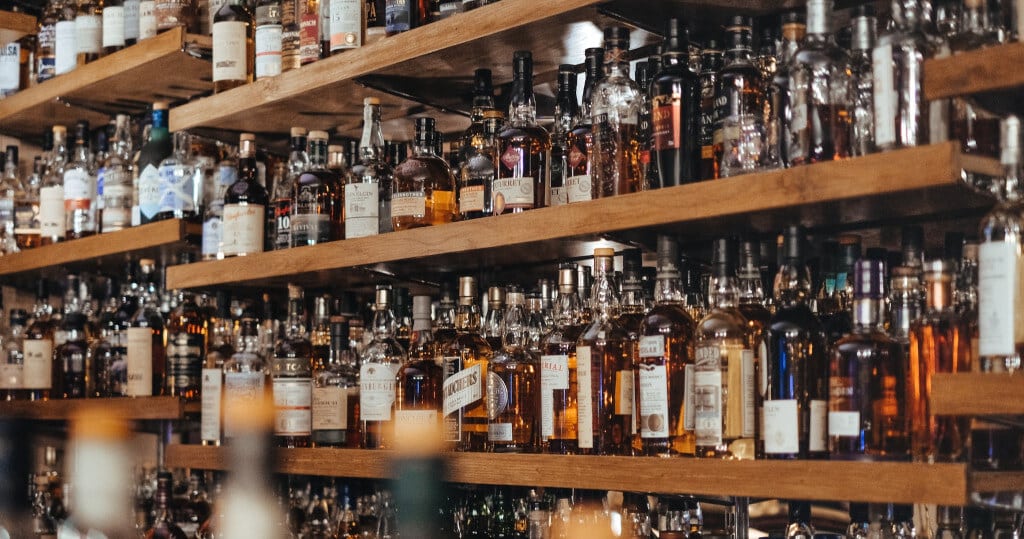
Section 1 of the 18th Amendment prohibited the “manufacture, sale, or transportation of intoxicating liquors.”
Section 2 states that the United States Congress has the power to enforce the article through pertinent legislation.
Section 3 declared that the article would only be operative after it was ratified as a constitutional amendment.
Congress subsequently passed the Volstead Act to carry out the intent of the Eighteenth Amendment.
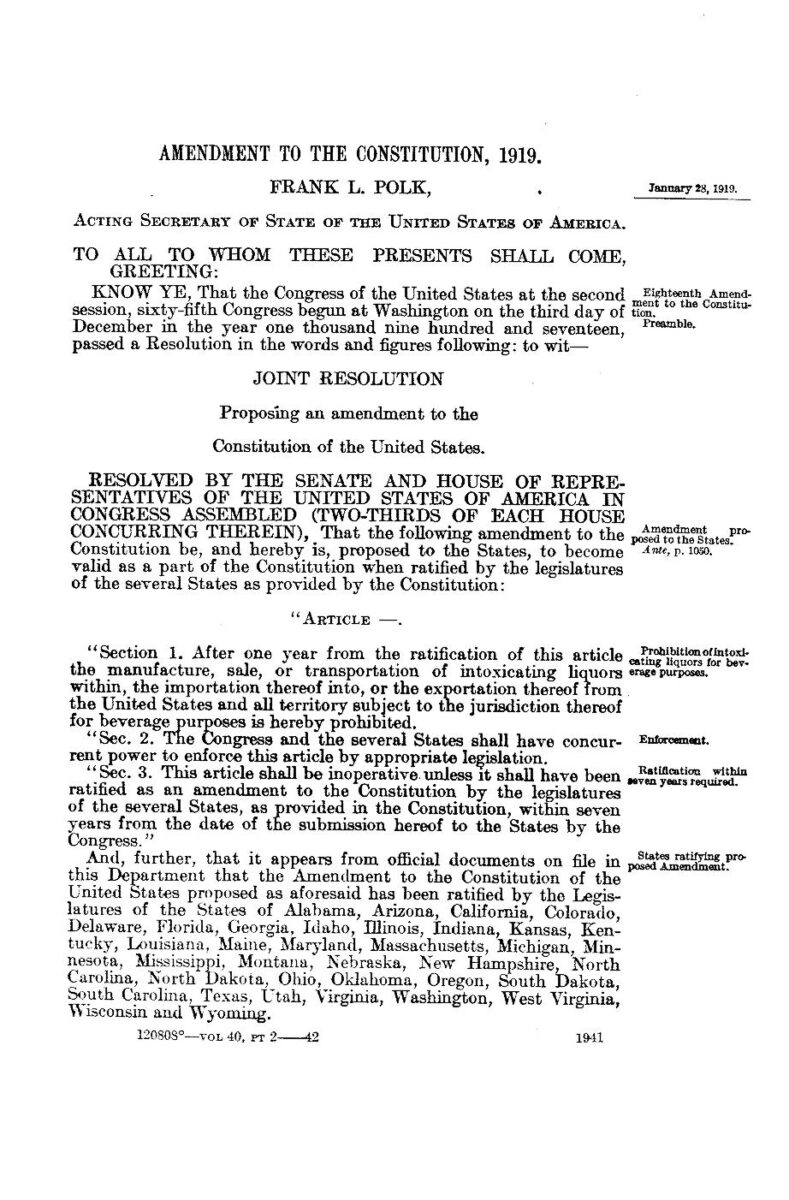
The Years Preceding Prohibition
Between 1913 and 1919, the nation’s laws primarily focused on establishing an income tax, electing Senators by the people, and prohibiting alcohol.

The government relied heavily on tax revenue from the sale of alcohol. Therefore, the enactment of the 16th Amendment (the income tax amendment) helped eliminate the main obstacle to prohibition.
The Sixteenth Amendment, which established the income tax, made prohibition financially feasible by replacing alcohol tax revenue. This removed one of the main arguments against prohibition.
What was the Volstead Act?
On October 28th, 1919, Congress passed the Volstead Act, also known as the National Prohibition Act, which introduced numerous limitations concerning the manufacture, sale, and transportation of alcohol.
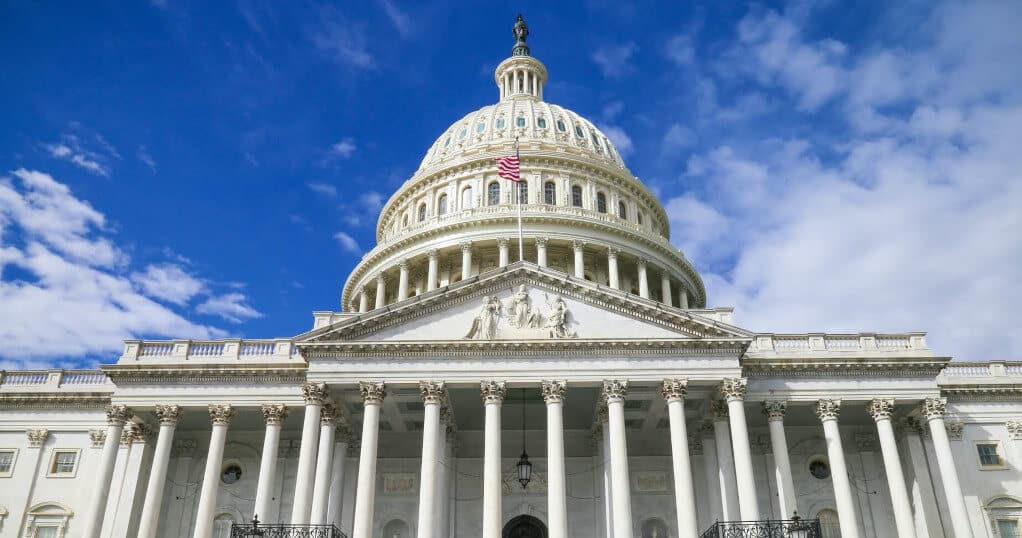
It stated which alcoholic beverages were restricted and which ones were not. Alcoholic drinks that were used for religious purposes or in medicine were exempt from the restrictions.
President Woodrow Wilson refused to sign the bill. Still, the House of Representatives and Senate overrode his veto, and the Volstead Act was enacted.
Prohibition began nationwide on January 17th, 1920, one year after the amendment’s ratification, as required by its text.
The Prohibition Bureau in the Treasury Department was created to enforce the law, but it was underfunded and faced widespread corruption, making enforcement difficult.
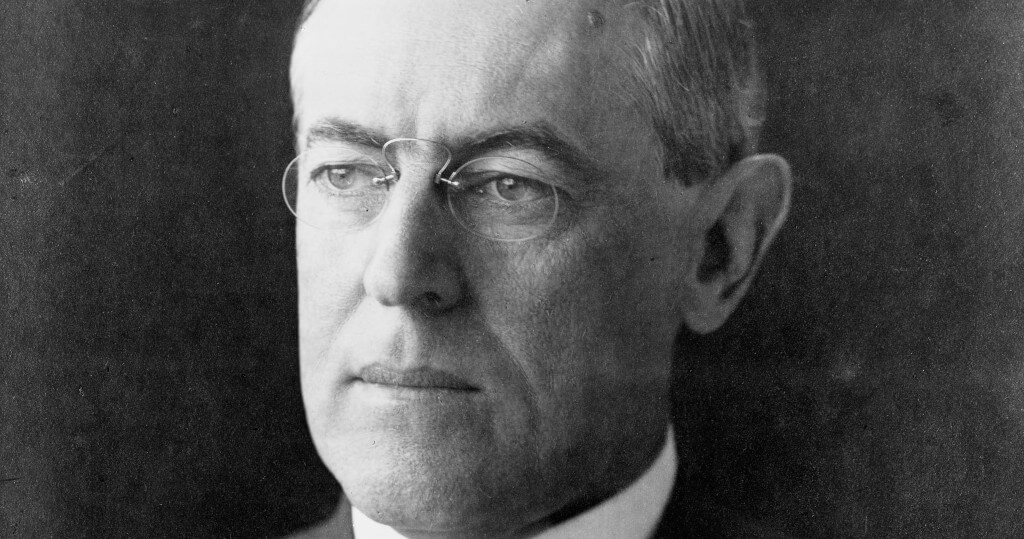
The Repeal of the Eighteenth Amendment
After the Eighteenth Amendment was ratified in 1919 and took effect in 1920, it remained in effect for 13 years. However, in 1933, the Eighteenth Amendment was repealed after the ratification of the 21st Amendment.
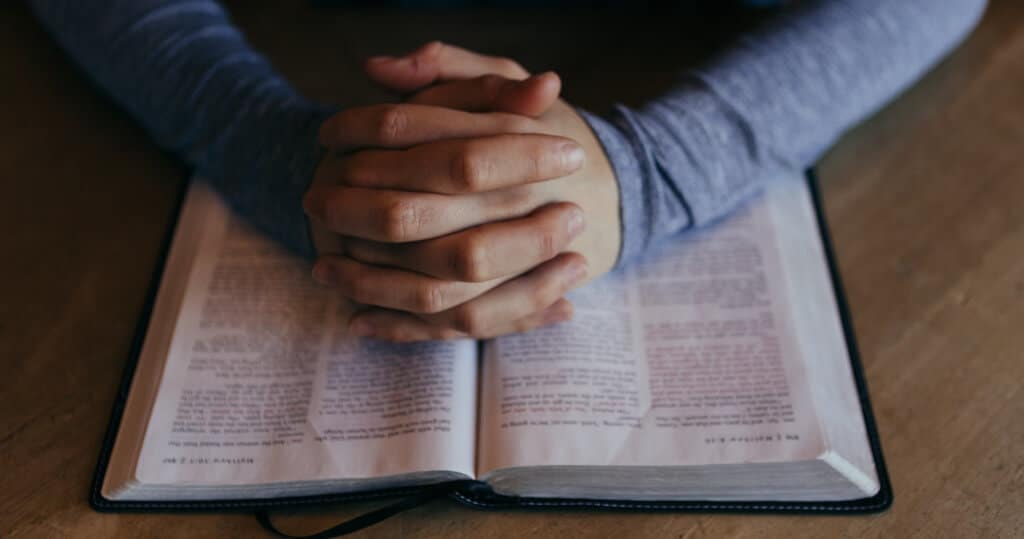
This was despite the fact that there were powerful political coalitions that had initially advocated for prohibition.
Many Protestant groups, progressives, and members of the Women’s Christian Temperance Union campaigned for prohibition, arguing that alcohol harmed families and public morals.

The temperance movement did not anticipate that prohibition would create a black market for alcohol and strengthen organized crime, including figures like Al Capone.

Get Smarter on US News, History, and the Constitution
Join the thousands of fellow patriots who rely on our 5-minute newsletter to stay informed on the key events and trends that shaped our nation's past and continue to shape its present.
Despite the ban, illegal bars called speakeasies and bootlegging operations spread across the country, fueling a black market for alcohol.
Enforcement of the Volstead Act became a near-impossible task, and a large and ultimately successful political movement grew calling for the repeal of the 18th Amendment.

The 21st Amendment ended national prohibition when it became effective on December 5th, 1933.
External 18th Amendment Resources:
- https://www.history.com/articles/18th-and-21st-amendments
History.com offers a comprehensive overview of the Eighteenth Amendment, its enforcement through the Volstead Act, and its eventual repeal via the Twenty-First Amendment, including societal impacts like organized crime. - https://www.britannica.com/topic/Eighteenth-Amendment
Encyclopedia Britannica’s entry on the Eighteenth Amendment covers its ratification, enforcement challenges, and repeal, with citations to key figures like Al Capone and organizations like the Women’s Christian Temperance Union.
Explore the 27 Constitutional Amendments
- 1st Amendment
- 2nd Amendment
- 3rd Amendment
- 4th Amendment
- 5th Amendment
- 6th Amendment
- 7th Amendment
- 8th Amendment
- 9th Amendment
- 10th Amendment
- 11th Amendment
- 12th Amendment
- 13th Amendment
- 14th Amendment
- 15th Amendment
- 16th Amendment
- 17th Amendment
- 18th Amendment
- 19th Amendment
- 20th Amendment
- 21st Amendment
- 22nd Amendment
- 23rd Amendment
- 24th Amendment
- 25th Amendment
- 26th Amendment
- 27th Amendment

